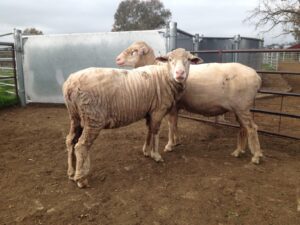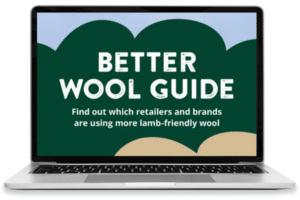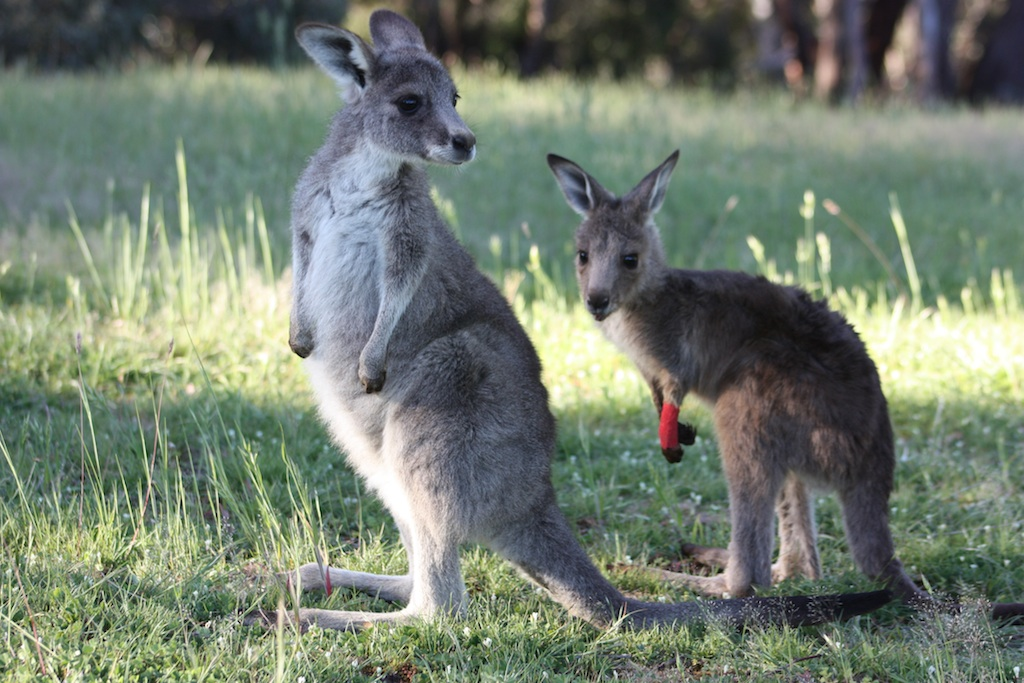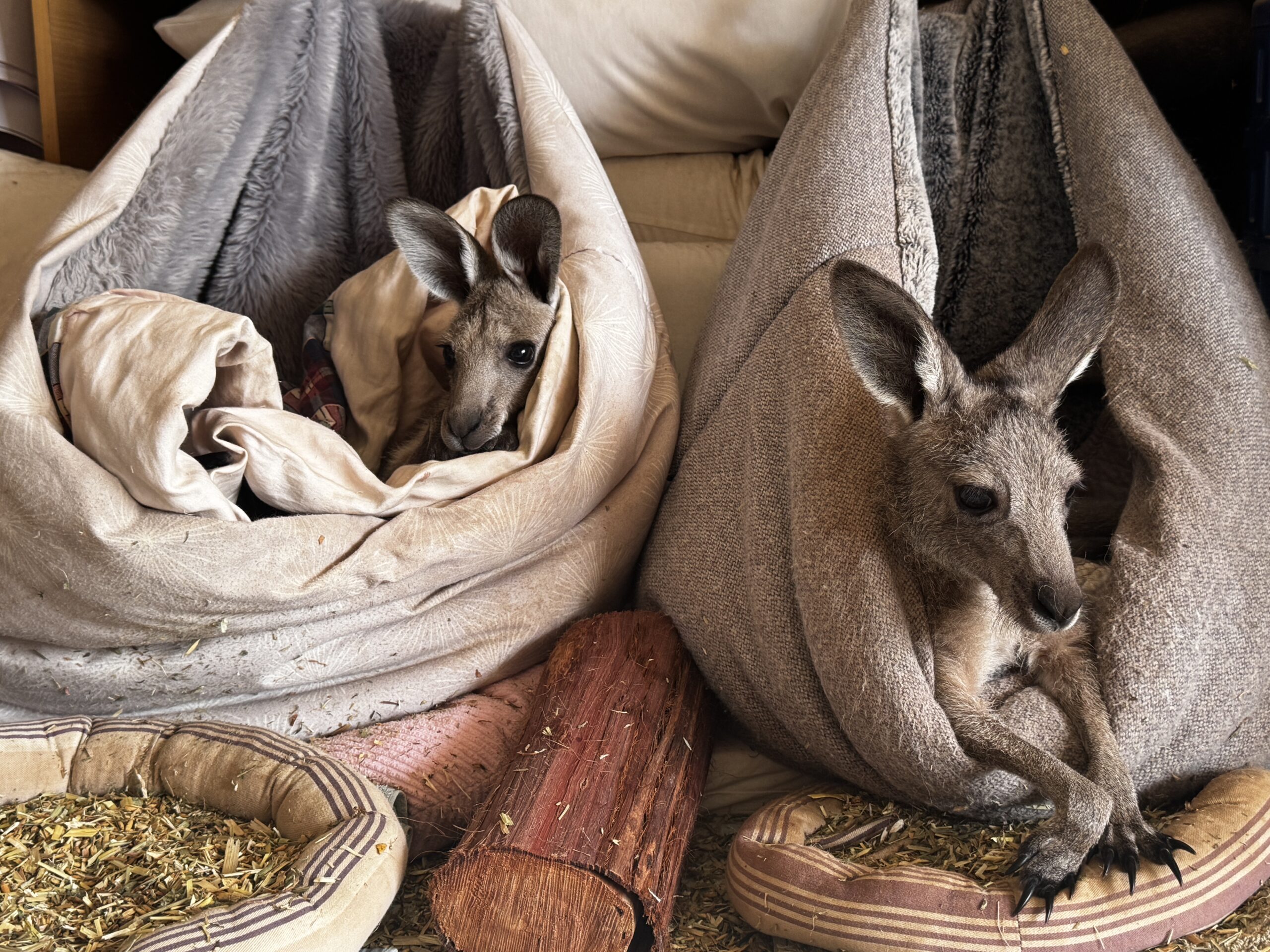Data on NSW licencing reveal the extent of Government-sanctioned destruction of native animals in the state | Conservation groups and wildlife carers to provide evidence of the extent of cruelty at inquiry into licensed killing SYDNEY (5 February, 2026)—Humane World for Animals Australia (previously Humane Society International Australia) will...
Consumers are becoming increasingly aware of one of Australia’s most controversial farming practices, “mulesing”, which is endured by more than 10 million lambs bred for wool each year. This growing condemnation of mulesing has seen over 200 retailers featured in the latest edition of Humane Society International Australia’s ‘Better Wool Guide’.
The history and process of mulesing:
Mulesing was developed almost a century ago by sheep farmer John Mules to try to prevent sheep from suffering flystrike—an infestation of a sheep’s flesh by blowfly maggots. It all started because wool producers used to breed sheep with lots of wrinkled skin to try to grow more wool for profit, but these folds of skin proved to be highly attractive to Aussie flies.
The practice involves cutting away strips of skin from around the rear end of lambs, normally when they’re between 2 to 10 weeks old, resulting in bare skin rather than wrinkled skin in that region. With this smoother, scarred skin around their rear area, the flies are less likely to attack. Our non-graphic explainer animation helps explain the process.
You would think that a procedure involving the use of sharp shears to remove areas of skin would only be done after administering pain relief. This would absolutely be the case if it was a procedure for a family pet. But the horrific reality is that sheep are considered production animals, so Australian laws allow mulesing to be carried out on lambs with no pain relief whatsoever. Victoria is the only state to take the lead on this, and has mandated pain relief—although it is generally applied to the wound after the skin is cut.
Changing consumer demands:

Image credit: Dr Jim Watts of SRS Merino)
Mulesing has been a growing area of controversy within the wool industry, and one that most wool growers choose to keep quiet about.
Thankfully a growing number of wool growers are producing wool without mulesing their lambs, instead using genetics to breed plain bodied sheep without wrinkles. These sheep are resistant to flystrike, producing high quality, profitable and kinder wool. Unfortunately, these progressive growers are still in the minority, and more need to follow their lead to help meet the demands for sheep-friendlier wool. Since New Zealand banned mulesing in 2018, Australia is now the only country practicing this cruel mutilation.
Consumer demands are driving change for lamb welfare, and many people are actively seeking mulesing-free wool or avoiding wool altogether. For those who buy wool, it’s close to impossible to determine whether it’s from a sheep that was mulesed or not. So we’re delighted to help out with the latest edition of our Better Wool Guide which is bigger than ever! It now features 221 brands with a position against mulesing, so Australian shoppers can more easily identify welfare-friendlier choices.
Brands and retailers are stepping up:

With consumer encouragement, brands and retailers are setting time-bound commitments to phase out mulesed wool. Many are using robust certification schemes such as the Responsible Wool Standard (RWS), NATIVATM and ZQ Merino, to help guarantee their wool is mulesing-free. Some examples include:
-
Country Road Group, Gorman, Kmart, Target, David Jones, H&M, Myer and Devold of Norway are among the brands that continue to feature in our Better Wool Guide, supporting better welfare measures.
-
Big name brands including Adidas, Nike, The Iconic, and VF Corporation have strengthened their commitments since the last edition of the Better Wool Guide and now rank in Tier 1.
-
Levi Strauss & Co. will ensure all the virgin wool (wool that has never been processed before) they use is RWS certified wool by 2025.
-
New York luxury fashion brand Another Tomorrow are 100% non-mulesed now, opting to source from two farms in Tasmania who they know go above and beyond caring for their sheep.
-
Iconic surf brand O’Neill set a goal to achieve 100% certified mulesed free wool by 2025, as has Everlane and Matinique.
-
BOOHOO GROUP PLC also aim for 100% RWS certified or recycled wool by 2025 in their many brands, including Boohoo, Coast, Karen Millen, Oasis, Warehouse, and Pretty Little Thing.
-
Big W has created a new mulesing policy, which escalates them into Tier 1 in the Better Wool Guide with their commitment to source RWS certified or equivalent non-mulesed wool across their own brand apparel, footwear and home textile products by the end of 2030.
-
ALDI Australia has made a similar promise with their new policy, placing them in Tier 1 of the Guide.
Some brands – including Surya, Neem London, and JOOP! – have opted to avoid Australian wool altogether due to the controversy surrounding mulesing.
With so many brands phasing out mulesed wool by 2025, the days of mulesing lambs are numbered. But the industry has a fair way to go. Despite the strong demand for kinder wool, only around 15% of merino wool was declared as non-mulesed in FY2022 which is not nearly enough.
How you can help end mulesing:
Download the Better Wool Guide and share with your friends. Let’s keep driving demand to eliminate the two of the sheep industry’s most painful problems: mulesing and flystrike. It’s time the wool industry stopped breeding sheep that are highly susceptible to flystrike and transitioned the rest of Australia’s flocks to plain bodied sheep.
You can help! Please take action today to call on Australia’s agriculture ministers to phase out live lamb cutting (mulesing).


